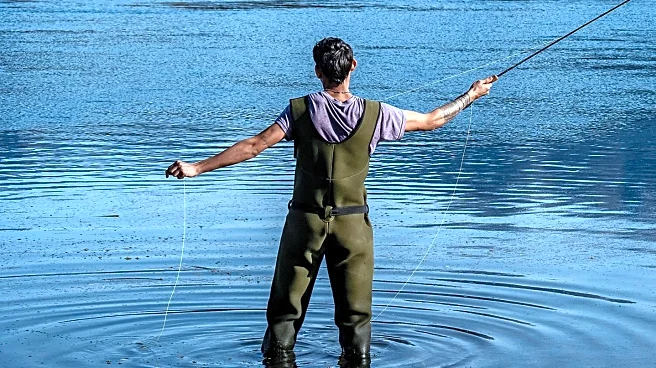What is the story about?
What's Happening?
Fly-fishing enthusiasts are advocating for increased participation in the sport as a means to promote conservation and combat climate change. The activity, which offers a meditative experience, is seen as a way to connect people with nature and raise awareness about environmental issues. Trout Unlimited, a leading conservation organization, emphasizes the importance of protecting rivers and fish populations, which are threatened by climate change and human activities. The organization encourages anglers to become advocates for ecological preservation, highlighting the role of recreational fishing in fostering a deeper understanding of environmental challenges.
Why It's Important?
Fly-fishing serves as a gateway for individuals to engage with environmental conservation efforts. As climate change continues to impact ecosystems, activities like fishing can help build a coalition of advocates who are invested in preserving natural habitats. The sport's popularity among diverse political groups presents an opportunity to bridge divides and foster a unified approach to addressing climate issues. By promoting conservation through recreational activities, organizations like Trout Unlimited aim to cultivate a sense of stewardship and responsibility towards the environment.
What's Next?
Efforts to increase participation in fly-fishing may lead to greater public support for conservation initiatives. As more people experience the benefits of connecting with nature, there could be a shift towards more sustainable practices and policies. Organizations may expand educational programs and outreach efforts to engage new audiences and promote environmental awareness. The growing consensus among anglers regarding climate change could influence public policy and drive action towards protecting natural resources.
Beyond the Headlines
The movement to promote fly-fishing as a conservation tool reflects broader cultural shifts towards sustainability and environmental consciousness. It highlights the potential for recreational activities to serve as catalysts for social change and community engagement. As society becomes more aware of ecological challenges, activities that foster a connection with nature may play a crucial role in shaping future conservation efforts.














